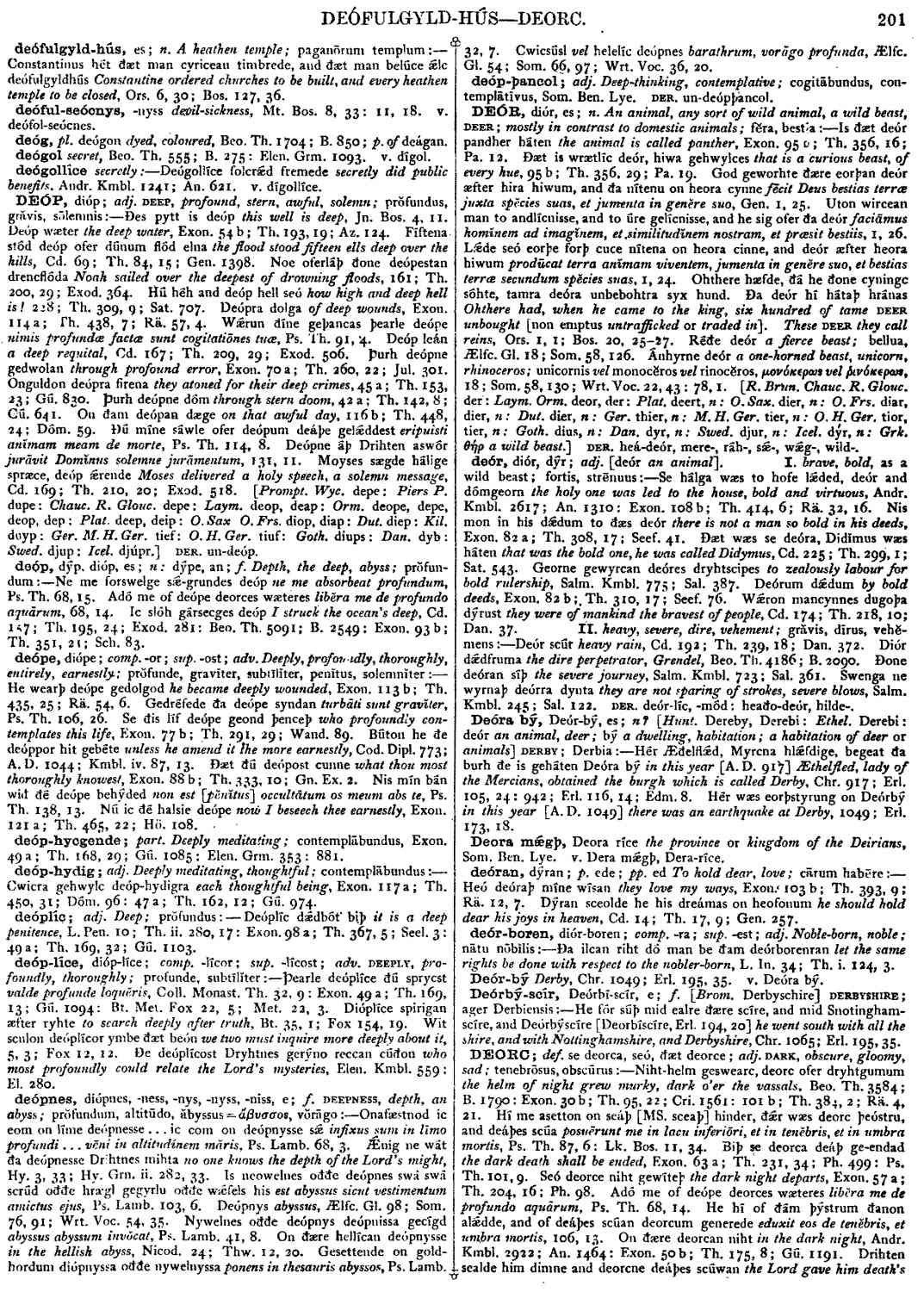deór
- adjective
-
Se hálga wæs to hofe lǽded, deór and dómgeorn
the holy one was led to the house, bold and virtuous,
- Andr. Kmbl. 2617 ;
- An. 1310: Exon. 108 b ;
- Th. 414, 6;
- Rä. 32, 16.
-
Nis mon in his dǽdum to ðæs deór
there is not a man so bold in his deeds,
- Exon. 82 a ;
- Th. 308, 17;
- Seef. 41 .
-
Ðæt wæs se deóra, Didĭmus wæs háten
that was the bold one, he was called Didymus,
- Cd. 225 ;
- Th. 299, 1;
- Sat. 543 .
-
Georne gewyrcan deóres dryhtscipes
to zealously labour for bold rulership,
- Salm. Kmbl. 775 ;
- Sal. 387 .
-
Deórum dǽdum
by bold deeds,
- Exon. 82 b ;
- Th. 310, 17;
- Seef. 76 .
-
Wǽron mancynnes dugoþa dýrust
they were of mankind the bravest of people,
- Cd. 174 ;
- Th. 218, 10;
- Dan. 37 .
-
Deór scúr
heavy rain,
- Cd. 192 ;
- Th. 239, 18;
- Dan. 372 .
-
Diór dǽdfruma
the dire perpetrator, Grendel,
- Beo. Th. 4186 ;
- B. 2090 .
-
Ðone deóran síþ
the severe journey,
- Salm. Kmbl. 723 ;
- Sal. 361 .
-
Swenga ne wyrnaþ deórra dynta
they are not sparing of strokes, severe blows,
- Salm. Kmbl. 245 ;
- Sal. 122 .
Bosworth, Joseph. “deór.” In An Anglo-Saxon Dictionary Online, edited by Thomas Northcote Toller, Christ Sean, and Ondřej Tichy. Prague: Faculty of Arts, Charles University, 2014. https://bosworthtoller.com/7607.
Checked: 1